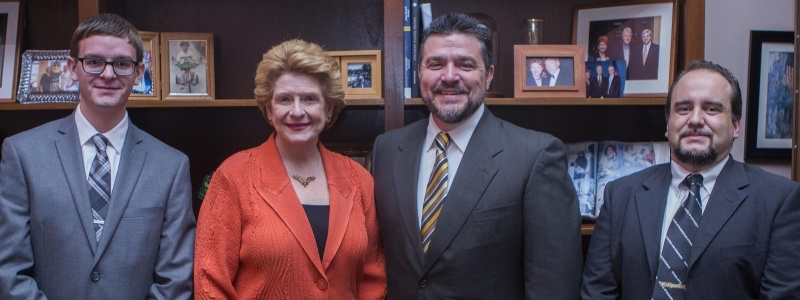
Niles, Michigan, native Jerrid Burdue, a 2017 Michigan Tech economics graduate, shares about his outside-of-class involvement instilled confidence to secure a rewarding full-time position.
Q: Why did you choose to study economics at Michigan Tech?
JB: I started out in civil engineering at Tech, but decided that I wanted to be more policy-focused. I found economics to be general enough to allow for policy interests in a wide variety of areas, while being rigorous in terms of quantitative and qualitative research.
Q: Describe your current role
JB: Currently, I am a senior planner with the Southwest Michigan Planning Commission located in Benton Harbor, Michigan. My agency covers three counties, all of which have a unique identity. While I primarily focus on economic development, I also interact with community development through comprehensive and recreation plans for local municipalities. I’m passionate about being able to connect organizations in our region to help promote equitable and sustainable economic growth.
Q: How has your economics degree contributed to your career?
JB: A degree in economics has allowed me to conduct data-driven research to inform local elected officials of areas to focus efforts. It also taught me that even though I may value something, not everyone will value it the same way or at all. Being able to build strong arguments helps me advocate for things that I am passionate about in a more effective way.
Q: What experiences did you have on campus that helped lead to your career today?
JB: I was a founding member and first president of the Economic Club. This role allowed me to work on building a budget and planning both a club trip to Minneapolis and an expert discussion on the economics of climate change. What stands out most was my participation in the iOme Challenge. Sponsored by the Women’s Institute for a Secure Retirement (WISER), this challenge tasked me with reimagining retirement for millennials. With the guidance of then Professor Emanuel Oliveira, I placed first in the nation and traveled to Washington, D.C., to participate in a panel discussion. This was an exciting chance to meet with my senators and talk to policymakers at the federal level.
Q: What advice do you have for prospective students considering economics at Michigan Tech?
JB: Michigan Tech has top-notch professors who are passionate about challenging students with intense materials and also take a personal interest in students’ success. Make an effort to connect with professors during office hours—even if you are doing well in the course.
About the College of Business
The Michigan Tech College of Business offers undergraduate majors in accounting, business analytics, construction management, economics, engineering management, finance, management, management information systems, and marketing, as well as a general business option. Graduate degrees include the TechMBA®, a Master of Engineering Management, a Master of Science in Accounting, and a Master of Science in Applied Natural Resource Economics.